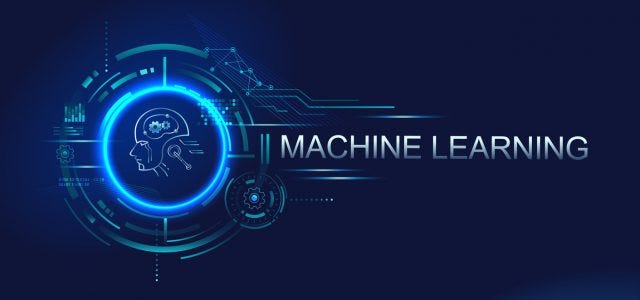AI and machine learning analysis is progressing at breakneck velocity. That is producing progressive options and methodologies that won’t solely drive new expertise right this moment however lay the foundations for the longer term. So on this weblog let’s discover among the most attention-grabbing machine studying analysis papers that had been revealed final month. Collectively, these papers showcase advances throughout numerous domains, from dealing with noisy knowledge to enhancing anomaly detection and quantum computing effectivity.
Get your ODSC Europe 2024 go right this moment!
In-Individual and Digital Convention
September fifth to sixth, 2024 — London
That includes 200 hours of content material, 90 thought leaders and consultants, and 40+ workshops and coaching periods, Europe 2024 will hold you recent with the newest matters and instruments in every thing from machine studying to generative AI and extra.
Gradient Guided Hypotheses: Tackling Scarce and Noisy Data
Researchers Paulo Neves, Joerg Ok. Wegner, and Philippe Schwaller have launched an architecture-agnostic algorithm named Gradient Guided Hypotheses (GGH). This algorithm addresses challenges related to noisy and incomplete knowledge, which frequently constrain the efficiency of machine studying fashions. GGH leverages gradients from hypotheses to detect and deal with distinct patterns in knowledge, thus treating noise and lacking knowledge as associated points. Experimental validation utilizing open-source datasets demonstrated GGH’s superiority over state-of-the-art imputation strategies, particularly in excessive shortage regimes, the place GGH was the one viable answer. This analysis underscores the potential of GGH in enhancing knowledge high quality and mannequin efficiency in numerous functions.
Transformer and Hybrid Models for Machine-Generated Text Detection
Within the paper by Teodor-George Marchitan, Claudiu Creanga, and Liviu P. Dinu, the UniBuc-NLP crew addresses the problem of detecting machine-generated textual content throughout a number of domains and languages. Their transformer-based mannequin secured second place out of 77 groups within the SemEval 2024 Job 8, reaching a formidable accuracy of 86.95%. Whereas their mannequin excelled in a single subtask, overfitting points had been famous in others, suggesting potential enhancements by way of higher fine-tuning and sequence size changes. This machine studying analysis highlights the robustness and flexibility of transformer architectures for textual content detection duties.
Deepak Narayan Gadde, Sebastian Simon, Djones Lettnin, and Thomas Ziller discover strategies to enhance verification throughput in SoC designs, a important bottleneck within the trade. Their examine compares conventional rating strategies with Cadence’s Xcelium ML expertise, which makes use of machine studying to optimize take a look at patterns. Each strategies confirmed comparable effectivity enhancements, however Xcelium ML additionally produced vital protection positive aspects by producing novel random situations. This machine studying analysis gives useful insights into leveraging ML for enhancing design verification processes.
Xiaoxia Zhang, Xiuyuan Qi, and Zixin Teng’s examine focuses on sentiment evaluation of Reddit feedback utilizing the GoEmotions dataset. They consider a wide range of fashions, together with conventional classifiers and transformer-based fashions like BERT, RoBERTa, and GPT. Their findings reveal that RoBERTa outperforms different fashions in fine-grained sentiment classification duties, demonstrating its potential for superior sentiment evaluation. This complete analysis highlights the significance of mannequin variety and nuanced efficiency metrics in sentiment evaluation analysis.
Applied Machine Learning to Anomaly Detection in Enterprise Purchase Processes
Herreros-Martínez and colleagues current a strategy for anomaly detection in enterprise buy processes. They make use of unsupervised machine studying methods, together with z-Rating, DBSCAN, k-Means, and Isolation Forest, to determine suspicious actions in massive datasets. Their method combines exploratory knowledge evaluation with ensemble prioritization and explicability strategies like LIME and SHAP, enhancing the effectiveness of anomaly detection in digitalized processes.
PAODING: Data-Free Pruning for Neural Networks
Mark Huasong Meng and his crew introduce PAODING, a toolkit for debloating pre-trained neural networks with out requiring knowledge. PAODING iteratively prunes neurons to reduce the impression on mannequin output, considerably lowering mannequin dimension whereas preserving accuracy and robustness. This toolkit presents a flexible answer for optimizing neural networks throughout numerous datasets and functions.
Leveraging Quantum Machine Learning Generalization to Significantly Speed-up Quantum Compilation
Alon Kukliansky and colleagues suggest QFactor-Pattern, a quantum machine studying method to hurry up quantum compilation. By changing complicated matrix operations with less complicated circuit simulations, they obtain a exceptional speedup issue of 69 for circuits with greater than eight qubits. This methodology improves scalability and effectivity, offering a promising method for quantum computing optimization
Data Assimilation with Machine Learning Surrogate Models: A Case Study with FourCastNet
Melissa Adrian, Daniel Sanz-Alonso, and Rebecca Willett discover the combination of machine studying surrogates with knowledge assimilation methods in climate forecasting. Utilizing FourCastNet inside a variational framework, they exhibit correct long-term predictions regardless of sparse and noisy observations. This machine studying analysis highlights the potential of mixing ML fashions with conventional forecasting strategies for improved climate prediction.
ODSC West 2024 tickets obtainable now!
In-Individual & Digital Information Science Convention
October Twenty ninth-Thirty first, 2024 — Burlingame, CA
Be a part of us for 300+ hours of expert-led content material, that includes hands-on, immersive coaching periods, workshops, tutorials, and talks on cutting-edge AI instruments and methods, together with our first-ever monitor dedicated to AI Robotics!
As you’ll be able to see, not solely do these papers characterize vital developments in machine studying, by addressing numerous challenges from knowledge high quality and sentiment evaluation to quantum computing and anomaly detection, however additionally they present how shortly the sphere is evolving due to developments on a number of fronts. With that stated, when you’re simply making an attempt to maintain up on these papers by yourself, it may be a frightening job.
However there’s hope! At ODSC Europe and ODSC West, you’ll have the chance to straight interact with the newest machine studying analysis, and people driving these research by way of talks, hands-on workshops, networking occasions, and extra.
So why simply learn every paper when you’ll be able to expertise them at ODSC Europe and West? Digital and in-person passes are restricted so that you’ll wish to get yours right this moment!
